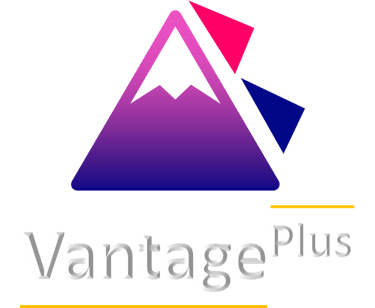
Top 5 ways to improve your lead generation for digital marketing
Top 5 Ways to optimize Your Lead Generation: Discover Digital Marketing Strategies That Convert Visitors into Valuable Leads. Learn how to effectively harness SEO, content marketing, social media, and PPC advertising to elevate your lead generation efforts and drive significant business growth.
LEAD GENERATION
Bashaar Ahmed
2/5/20249 min lesen
Utilizing Digital Marketing to Optimize Lead Generation
In the ever evolving landscape of business, it has become pivotal for organizations to deploy effective strategies in digital marketing to optimize lead generation. Indeed, harnessing the potential of modern technologies promises profound implications in capturing customer interest. A fine-tuned digital marketing approach can significantly elevate the reach, opening multiple avenues for prospective clients to stumble upon your business.
However, to genuinely optimize lead generation, it is crucial to understand the delicate synergy between various digital marketing tools and strategies, from SEO and content marketing, to social media engagement and Pay-Per-Click advertisements. Each facet has unique strengths that can augment your lead generation efforts in different capacities. The key lies in adeptly maneuvering these tools to create a cohesive, results-driven digital marketing plan that not only appeals to your target demographics, but also coaxes them towards a profitable action.
Evaluating the Effectiveness of Your Lead Generation Strategy
Lead Generation Strategies are a fundamental component of any successful digital marketing approach. These strategies enable businesses to attract potential customers, capture their interest, and convert them into confirmed leads. Therefore, it is essential for businesses to periodically evaluate the effectiveness of their Lead Generation Strategies to ensure they are delivering the desired results and providing value for the investment.
When evaluating the effectiveness of Lead Generation Strategies, several key metrics should be considered. These include the conversion rate, which demonstrates how effectively potential leads are being transformed into actual customers, and the cost per lead, which provides invaluable insight into the cost-effectiveness of the strategy. Detailed analysis of these metrics can reveal the efficiency and the return on investment of your Lead Generation Strategies, aiding in the optimization of the future campaign.


Measuring the Success of Your Lead Generation Efforts
The effectiveness of lead generation efforts is not ascertained by the mere number of leads being generated. It is vital to evaluate the quality of the leads, specific actions taken by these leads like purchases or downloads, and the overall impact on sales and revenue. It is crucial to use reliable metrics to measure these parameters accurately. Effective lead generation demands in-depth understanding and shrewd application of these metrics to make data-backed decisions that drive sales.
With the advent of digital marketing, businesses have a wealth of tools at their disposal to measure and track their lead generation success. The use of Lead Generation Digital Marketing software allows firms to automate much of the data collection process, streamline lead qualification, and provide insights into which marketing activities are driving the highest ROI. Regular auditing of this data plays a crucial role in ensuring the marketing strategies deployed are not just generating leads, but creating meaningful engagement that leads to revenue for the company.
Assessing the Impact of Your Lead Generation Strategy
To accurately assess the impact of your lead generation strategy, a comprehensive understanding of the intricacies of digital marketing is essential. Digital marketing lends itself to detailed tracking and analytics, which are instrumental in gauging the success of your strategies. For instance, through tracking metrics such as click-through rates, conversion rates, and bounce rates, businesses can pinpoint exactly where their strategies are excelling or falling short, thus providing insightful data for effective strategy refinement.
To optimize this process, businesses should consider employing dedicated digital marketing and lead generation tools. This allows for real-time assessment and enables quicker response and adjustments to strategy. What sets digital marketing apart is its ability to provide immediate, measurable data. This is invaluable in the ever-changing digital landscape, where businesses must adapt quickly to maintain a competitive edge. With proper analysis and adaptation, a lead generation strategy harnessed by digital marketing can yield significant growth for businesses.
Optimizing Your Digital Marketing Strategies for Better Lead Generation
In today's dynamic market, optimizing digital marketing strategies is integral to achieving desirable lead generation results. As the corporate world navigates the digital era, companies need to review their strategies to ensure they align with the rapidly evolving digital marketing landscape. The efficiency and effectiveness of these strategies play a crucial role in shaping the overall growth and success of business operations.
There is an array of digital marketing strategies that companies can leverage to enhance their lead generation. From creating engaging content on social media platforms to utilizing email marketing to reach potential clients directly, these strategies offer varied approaches based on a business's specific objectives. SEO optimization, for example, can significantly increase the visibility of a company online, while PPC advertising enables them to tap into a specific audience segment. Thus, making use of robust digital marketing strategies helps businesses capture more leads and accelerate their growth.
Ways to Improve Your Digital Marketing for Lead Generation
The advent of digital technology offers a multitude of avenues to enhance your lead generation efforts. A crucial aspect includes fine-tuning your website for search engine optimization (SEO). Ensuring your business appears on the first page of search engine results is vital for visibility. Integrate high-volume keywords relevant to your industry into your content and meta descriptions and utilize link building strategies. Equally beneficial is the consistent publishing of meaningful and engaging content that addresses the pain points of your target audience, therefore positioning your brand as a solution to their challenges.
In addition, implementing a strong social media strategy can significantly improve lead generation. Employing targeted advertising on platforms such as Facebook, LinkedIn, or Instagram can help reach your ideal customers where they spend a significant portion of their time. Using these platforms also provides an opportunity to engage with potential customers directly, fostering a sense of community and trust. Email marketing still holds its weight in the digital landscape, with personalized emails serving as tools to nurture prospects and guide them along the buying process.
Enhancing Your Digital Marketing Strategies for Increased Leads
In the ever-evolving world of e-commerce, it is crucial for businesses to continually enhance their digital marketing strategies. The goal is clear: to drive increased business leads and thereby boost conversion rates. The playfield is immense – content marketing, SEO optimization, social media engagement, email marketing, and video marketing, to name just a few. In order to remain a step ahead of the competition, businesses must leverage these tools effectively, tailoring their strategies to meet the unique needs and preferences of their target audience.
Arguably, one of the most impactful ways to amplify your digital marketing strategies is through data-driven decision making. Utilizing analytics and tracking tools, businesses can get a clearer understanding of their consumers' behaviours, preferences, and responses. By analyzing these data points, companies can refine their marketing tactics, personalize their approach, streamline campaigns, and fine-tune their messaging accordingly. The result is a more potent and precise digital marketing strategy designed to attract, engage, and convert more leads than ever before.
Future Trends in Lead Generation and Digital Marketing
The rapid evolution of technology continues to mould the landscape of digital marketing and lead generation. Exponential progression in artificial intelligence and machine learning algorithms has spurred strategic shifts in business organizations' marketing methodologies. Techniques such as predictive analysis and consumer behavior modeling are emerging as potent tools in effective lead generation; their potential for mold-breaking results set to redefine the rules of the game.
Personalization in content delivery, already a widely recognized trend, is expected to become even more integral in developing impactful touchpoint engagements with potential customers. Meanwhile, the advent of more immersive technologies, such as augmented and virtual realities, presents fresh avenues for engaging audiences. Such innovations promise to add newer dimensions to the practice of lead generation, reflecting the ongoing metamorphosis in the realm of digital marketing.


Upcoming Developments in Lead Generation Strategies
The landscape of lead generation is constantly expanding and transforming due to technological advancements. As businesses look to innovate and stay ahead of competition, modernization in lead generation strategies is becoming increasingly indispensable. In response to this trend, foresight into up-and-coming developments in lead generation strategies can provide a competitive advantage like no other. The commencement of artificial intelligence (AI), machine learning, and increasingly sophisticated CRM systems indicate an intriguing future for lead generation.
In the quest for effective lead nurturing and qualification, AI and machine learning are generating exciting possibilities. AI has the potential to automate and enhance the process of lead scoring, thereby freeing driven marketing professionals to concentrate on strategic tasks. Machine learning can aid in identifying patterns and predicting leads' behavior, making the strategies more precise and efficient. Additionally, advancing CRM systems and their tighter integrations with other marketing tools are making it easier than ever to track, analyze, and optimize lead generation efforts while providing a superior customer experience.
AI and Machine Learning: The use of artificial intelligence and machine learning in lead generation strategies is set to revolutionize the way businesses operate. These technologies can automate mundane tasks such as data collection, analysis, and segmentation, allowing marketing professionals to focus on more strategic activities. They also have the potential to improve accuracy in predicting leads' behavior which will result in more targeted marketing campaigns.
Advanced CRM Systems: Customer Relationship Management (CRM) systems are becoming increasingly sophisticated with tighter integrations with other marketing tools. This development not only makes it easier for businesses to track and analyze their lead generation efforts but also optimizes these initiatives by providing valuable insights into customer behavior patterns.
Predictive Analytics: With advancements in big data technology, predictive analytics is playing a crucial role in lead generation strategies. It enables companies to predict future behaviors based on historical data, thereby helping them identify potential leads before they even exhibit interest.
Social Media Marketing: As social media platforms continue evolving at an unprecedented pace, they offer new avenues for generating leads. Businesses that leverage these channels effectively stand a chance of reaching out to a wider audience while engaging with existing customers better.
Content Marketing: Quality content continues being an essential component of successful lead generation strategies. By providing relevant information that resonates with your target audience's needs and interests, you can attract high-quality leads who are likely interested in what your business offers.
In conclusion, staying abreast of upcoming developments in lead generation strategies is critical for any business looking forward towards achieving sustainable growth. By leveraging AI & machine learning capabilities along with advanced CRM systems; incorporating predictive analytics; utilizing opportunities offered by social media platforms; and focusing on creating quality content - businesses can significantly enhance their chances of success.
Emerging Trends in Digital Marketing for Lead Generation
As the world embraces newer technologies, it is only natural for digital marketing strategies to adapt and evolve. Of particular note are the emerging trends in digital marketing for lead generation. Techniques are being revised and new methods introduced, all with the intention of better connecting businesses with potential customers. With the rise of artificial intelligence and machine learning, marketing has become more personalized and direct, showing promising improvements in lead generation efforts.
Similarly, social media platforms have revolutionized the digital marketing landscape as an effective tool for lead generation. Businesses are now able to reach global audiences effortlessly, engage interactively, and foster relationships that eventually turn these audiences into potential leads. The focus is shifting towards creating high-value content that not only attracts but also engages and retains customers. Content marketing, coupled with impressive advancements like chatbots and programmatic advertising, is reinventing lead generation strategies, rendering them more effective than ever.
Frequently Asked Questions!
How can digital marketing be used to optimize lead generation?
Digital marketing can be used to optimize lead generation by creating engaging content that attracts prospects, utilizing search engine optimization for increased visibility, leveraging social media platforms for wider reach, and using email marketing for nurturing leads. It also involves analyzing and adjusting strategies based on data and trends.
How can the effectiveness of a lead generation strategy be evaluated?
The effectiveness of a lead generation strategy can be evaluated by tracking key performance indicators (KPIs) such as conversion rates, cost per lead, return on investment (ROI), and the number of qualified leads generated. Additionally, the customer's journey from being a prospect to a client can also be analyzed to understand the effectiveness of the strategy.
What methods can be used to measure the success of lead generation efforts?
The success of lead generation efforts can be measured using various metrics such as the number of new leads generated, the quality of these leads, conversion rates, and ROI. Tools like Google Analytics and CRM software can help track these metrics.
How can digital marketing strategies be optimized for better lead generation?
Digital marketing strategies can be optimized for better lead generation by understanding the target audience's needs and preferences, creating high-quality and relevant content, using SEO for increased visibility, utilizing social media platforms, and leveraging email marketing for lead nurturing. It also involves regular monitoring and adjusting of strategies based on performance.
What are some ways to improve digital marketing for lead generation?
To improve digital marketing for lead generation, businesses can implement strategies such as targeting the right audience, personalizing the content, improving website design and user experience, optimizing SEO, and using social media and email marketing effectively. It's also crucial to regularly assess and update the strategies based on performance and changing trends.
What trends can we expect in lead generation and digital marketing in the future?
Future trends in lead generation and digital marketing may include more personalized and interactive content, increased use of artificial intelligence and machine learning for data analysis, more emphasis on mobile marketing, and the rise of voice search and smart speakers. The use of video content and influencer marketing is also expected to grow.
What are some emerging trends in digital marketing for lead generation?
Some emerging trends in digital marketing for lead generation include the use of AI and automation for personalized experiences, the growing importance of social media and influencer marketing, the rise of video content, and the growing emphasis on data-driven marketing. The use of chatbots for customer interaction and the integration of VR and AR technology are also on the rise.
Vantage Plus
Öffnungszeiten
Montag - Freitag 10:00 - 18:00pm
Standort
Business Center 1, M Floor. The Meydan Hotel, Nad Al Sheba, Dubai U.A.E
Kontakte
Telefon: +971566121732 info@vantageplusmarketing.com
